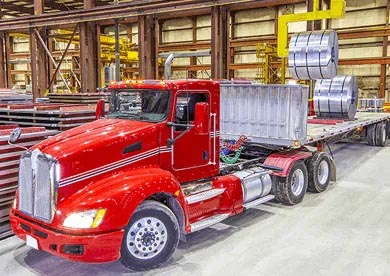US President Donald Trump yesterday issued an Executive Order entitled “Adjusting Imports of Steel into the United States,” which outlined that a 25 percent tariff on steel articles would be applied on March 12.
The president believes these steel products are being imported into the United States in quantities and under circumstances that threaten to impair the national security of the United States.
The executive order states that any country which the United States has a security relationship with is welcome to discuss alternative ways to address this threat to national security caused by these imports, and that should the United States and that country arrive at a satisfactory alternative to address the U.S. security issues, the President may remove or modify the restriction on steel articles being imported and adjust the tariff as it applies to other countries.
Both the Canadian Steel Producers Association (CSPA) and the Aluminum Association of Canada (AAC) are sounding the alarm on this issue, indicating that the long term ramification would be devastating if these tariffs are applied. One of the associations has also publicly discussed the potential need for short-term government aid to get companies through the potential crisis.
“Canada’s trucking industry plays a critical role in the movement of steel and aluminum products, and the impact on many of these fleets would be fatal,” said CTA president Stephen Laskowski. “While it is unclear what assistance the trucking industry can provide in addressing the security concerns outlined in the presidential order, CTA stands ready to support CPSA and AAC in developing a plan to avoid these tariffs.”
CTA and its provincial association members would welcome a discussion with all levels of government to discuss the potential development of relief packages or stimulus measures for the steel and aluminum supply chain.
“This was already the worst freight market in 40 years for many trucking fleets, compounded by an out-of-control underground economy which is driving compliant companies out of the sector,” said Laskowski. “Economic relief packages for the steel and aluminum supply chain must include the compliant trucking industry; and, unlike the relief provided during COVID, it must not include noncompliant companies that take part in the underground economy.”
Canada’s monthly trade values with the United States in finished iron or steel products total about $11 billion per month with close to 75% of this trade moving by the trucking industry. Trucking also moves about 30% of the $600 million monthly trade in the aluminum and alloy sector.


